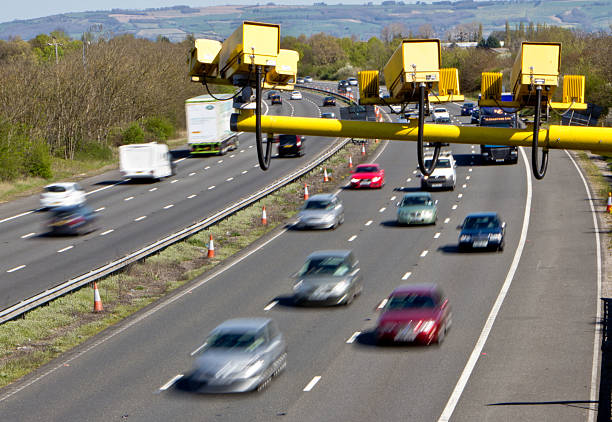Sam Liccardo Testifies Before California Lawmakers About Speed Cameras, Now They are Coming to Three Bay Area cities
The State Assembly’s Transportation Committee heard testimony from San Jose Mayor Sam Liccardo on Monday. In his speech, he spoke in support of a bill to run automated speed enforcement cameras in California, ABC7 report.
Liccardo feels that having the cameras would make busy streets safer for pedestrians and motorists by enabling law enforcement agencies to enforce speed limits.
Traffic fatalities in San Jose continue to rise at a record pace at the time of his push for automated speed enforcement cameras.
“We know from our data, 30% of those auto fatalities, speeding constituted the key cause of that collision. Automated speed enforcement clearly works,” he stated.
“A 2017 study from the National Transportation Safety Board confirmed what several U.S. cities have already found- with automated speed enforcement reducing traffic fatalities by between 46 and 71% in cities like Portland, New York, Washington DC.”
Cities are not allowed to use these speed cameras under California law.
However, Assembly Bill 2336 allows cities such as San Jose, Oakland, and San Francisco to establish speed safety systems pilot programs
Those cameras would be placed at intersections with high injury rates, and be designed to monitor vehicles that go 11 miles over the posted speed limit.
Images and videos of license plates would be captured, and tickets would then be mailed to the registered owner.
Fines rates begin at $50.
“We’re looking for the more egregious drivers,” Committee Chairwoman Laura Friedman said on Monday.
“The money that’s generated in fines has to go right back into that very same community for physical infrastructure, to make those roads safer. So, it generates revenue, not for a general fund, not in a punitive way, but to actually do improvements on those dangerous roads.”
“You know, the individual that hit and killed my daughter was going over 40 mph,” Felipa Pineda told ABC7 News.
Vanessa Pineda, a mother of five, was struck and left for dead as she crossed Monterey Road and Curtner Avenue in her wheelchair.
“This Saturday, April 2 will be a year that she was killed,” Pineda’s daughter shared.
The driver has yet to be identified a year after the accident.
Nevertheless, lawmakers voted 10-0 on Monday to move the bill forward, as a step in the right direction, she said.
“I know there’s red tape that they have to go through,” she shared. “But there are lives that are being taken here.
Opponents of AB 2336 including the ACLU, Electronic Frontier Foundation, and others argued that the bill would violate individual privacy and that it would be impossible to know what information was collected by the government.
The author of the bill, Friedman replied that there are safeguards built into the bill to protect privacy and equity.
“We have tried to build equity and safeguards and guardrails into this program,” she said.
“And have really done this. And also, the cities have to warn people when they’re coming into a zone or the speed cameras are being used. Because our intention is to take the most dangerous streets in a community and slow people down.”
ABC7 News reached out to the San Jose Department of Transportation about the plans.
DOT stated, “Speeding is the top leading factor of traffic fatalities in San José, followed by red light running. San José has probably more traffic fatalities than any other City in the Bay Area, and the number of tragic collisions is increasing every year, with pedestrians, cyclists, and homeless individuals much more likely to die from traffic related crashes than other street users in San José.”
The statement points out that in order to achieve San José’s “ambitious Vision Zero goals of eliminating traffic fatalities and severe injuries, the City needs a multi-layered approach, including sensible enforcement tools.”
DOT noted, “Speed safety systems have demonstrated to be an effective tool in reducing speeding and traffic crashes in other cities in the United States. AB 2336 would allow cities to pilot speed controls, while limiting the disproportionate impacts that speed control placement or speeding citations may have on low-income or racially diverse communities.”

